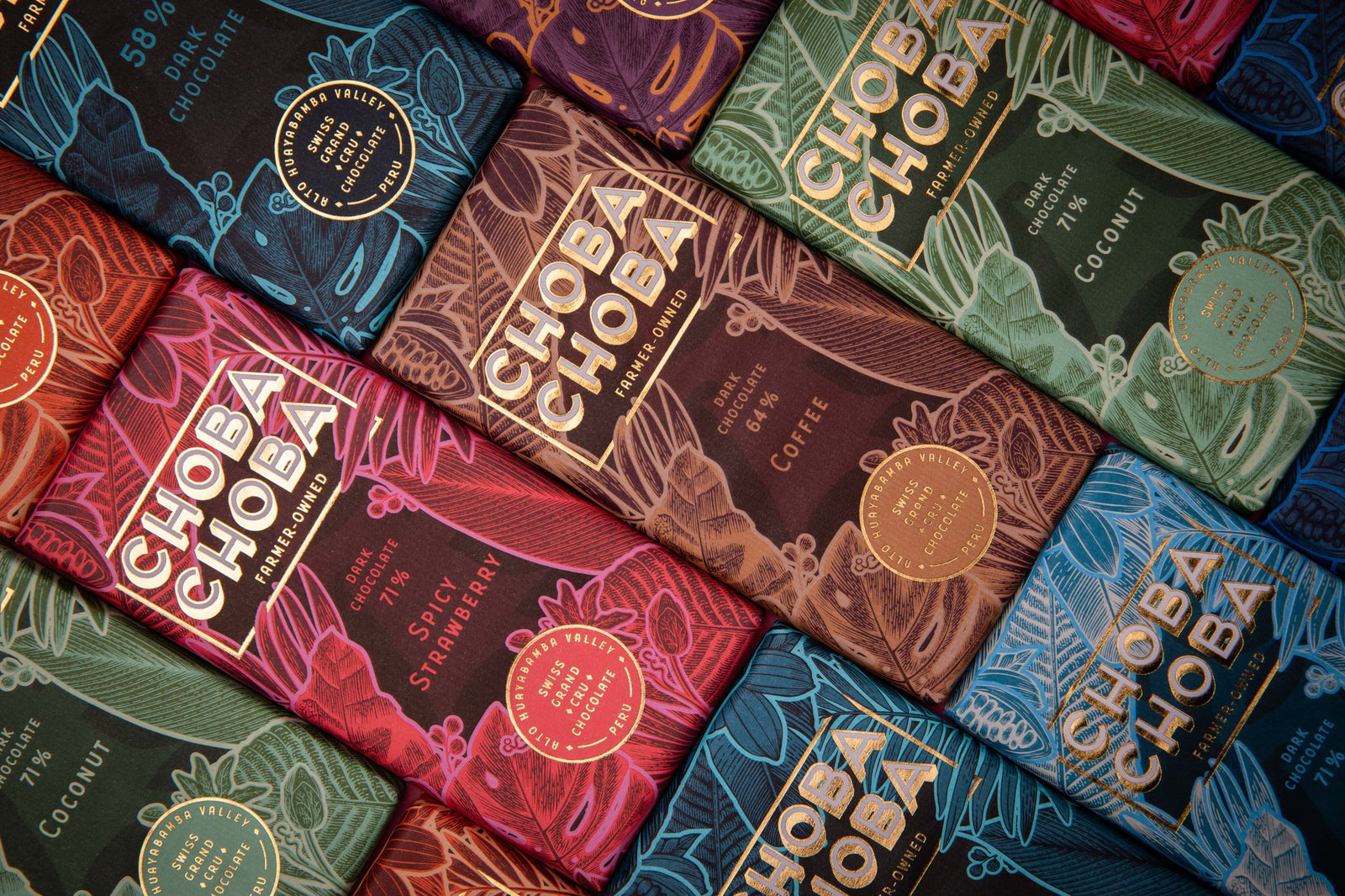65 years separate Alicia, co-founder of Choba Choba and the oldest among the farmers, from José Luis, the youngest, who embarked on the adventure in 2021. Despite their age difference, they connect and bring two things closer together: their passion for cocoa and love for their country and community. It is in the heart of the Huayabamba Valley in the Peruvian Amazon, where the municipalities of Pucallpillo, Santa Rosa, Pizarro and Bello Horizonte are located. It all started here. This is where Choba Choba was born.
Today, the majority of the valley's population is made up of cocoa and plantain producers (two cultures that complement each other well), but this wasn't always the case. The cacao tree is native to the Amazon Basin, and Peru is home to over 60% of the species' genetic diversity, making it highly likely that cacao appeared in the region thousands of years ago. However, the establishment of the first plantations in the Huayabamba Valley only took place a quarter of a century ago. Until the early 1990s, the flagship product was coca.
The isolated and fertile region was ideally suited to this culture, and the drug trade flourished. Some people were content to grow coca and deliver its leaves to intermediaries who traveled through the villages on behalf of local or Colombian drug lords. Others, aware of the possibility of getting a larger share of the added value, became improvised chemists and produced a semi-processed product themselves: coca paste cocaine. These were obviously illegal and risky activities, but they formed the main source of income for thousands of residents of the region at the time, including those who now belong to the Choba Choba family.
25 years later, far from being eradicated despite numerous government efforts, coca cultivation has moved further south and the Huayabamba Valley presents a very different picture. But minds are forever etched with the scars of clashes between the armed forces, drug traffickers and terrorist groups lured to the region by financial incentives.
The younger generation, like José Luis, did not live to see this era and may not fully understand the efforts that pioneers had to make to make the transition from cultivating coca - an undeniably illegal but relatively easy and inexpensive crop - to cultivating cocoa , which is much more labor intensive and has uncertain profitability. They belong to the new generation of Choba Choba farmers, inspired by their elders who once decided to rethink everything and take their destiny into their own hands. It is both a source of pride and a task for Choba Choba to attract and integrate the new generations, as cocoa cultivation is often overlooked by the younger ones who believe, often rightly, that there is no bright future in this agricultural sector gives.
At 92, Alicia is less involved in meetings and her family now tends to their small property of barely 1 acre. Nevertheless, she inspires us every day with her zest for life, her strength of character and her resilience after she has experienced everything. She also embodies the living symbol of solidarity across generations: 5 of her children and 3 of her grandchildren are members of Choba Choba.




Leave a comment (all fields required)